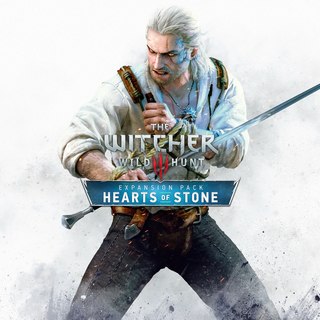
Spin Doctors are an American rock band from New York City, best known for their early 1990s hits, "Two Princes" and "Little Miss Can't Be Wrong", which peaked on the Billboard Hot 100 chart at No. 7 and No. 17, respectively.

Heart is an American rock band that first found success in Canada and later in the United States and worldwide. Over the group's history, it has had three primary lineups, with the constant center of the group since 1973 being sisters Ann Wilson and Nancy Wilson. Heart rose to fame in the mid-1970s with music influenced by hard rock and heavy metal, as well as folk music. Their popularity declined in the early 1980s, but in 1985, the band launched a successful comeback which saw them experience greater success with album-oriented rock hits and hard-rock ballads that went into the 1990s.

A witch doctor was originally a type of healer who treated ailments believed to be caused by witchcraft. The term witch doctor is sometimes used to refer to healers, particularly in regions which use traditional healing rather than contemporary medicine..
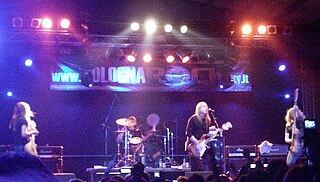
Angel Witch are a British heavy metal band which formed in London, England in 1977 as part of the new wave of British heavy metal movement. They are well known for having inspired Lars Ulrich to form Metallica.
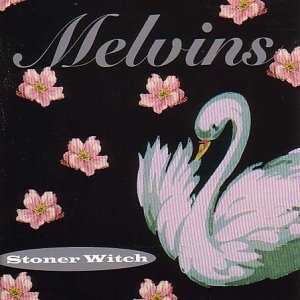
Stoner Witch is the seventh studio album by Melvins, which was released in 1994 through Atlantic Records.

The Innocents is the third studio album by Erasure, released in 1988. Produced by Stephen Hague and released by Mute Records in Germany and the UK and Sire/Reprise Records in the USA, it was the release that made Erasure superstars in their home country and gave them their long-awaited breakthrough in the U.S.

"Witch Doctor" is a song written and performed by Ross Bagdasarian Sr., and released in 1958 by Liberty Records under the stage name David Seville.

Lovecraft & Witch Hearts is a compilation album by English extreme metal band Cradle of Filth, released on 13 May 2002 by record label Music for Nations.

Dream Dancing is a 1978 album by Ella Fitzgerald. Twelve of the tracks on this album were recorded in June 1972 and originally released on Fitzgerald's 1972 Atlantic album, Ella Loves Cole. In 1978, Pablo Records repackaged the album with the addition of two new recordings from February 1978.

Magazine is the third studio album by the American hard rock band Heart. It has an unusual history in that the first release in 1977 was an unfinished version not authorized by the group. A second authorized version of the album was re-released in 1978. The album was certified platinum in the US and Canada.

"Turn to Stone" is a 1977 song by Electric Light Orchestra (ELO).
Doctors of Madness were a British protopunk art rock band active as a recording and touring band from 1975 until late 1978. They found cult level acclaim and recognition in the 70's, but had little commercial success. Since then they have come to be regarded as prime movers who were forerunners of the later punk movement.

"Good Lovin'" is a song written by Rudy Clark and Arthur Resnick that was a #1 hit single for the Young Rascals in 1966.
Alice Troughton is a British television director. Her work on Doctor Who makes her only the second person to direct episodes of each of Doctor Who, Torchwood, and The Sarah Jane Adventures.
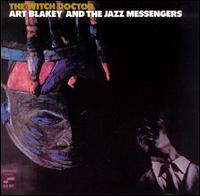
The Witch Doctor is an album by Art Blakey and his group The Jazz Messengers recorded on March 14, 1961 and released on the Blue Note label. It features performances by Blakey with Lee Morgan, Wayne Shorter, Bobby Timmons, and Jymie Merritt.
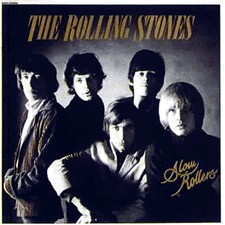
Slow Rollers is a compilation album of ballads by The Rolling Stones released in 1981. It is a follow-up to the compilation of rock and roll numbers a year earlier called Solid Rock. The main feature is the Italian version of "As Tears Go By", which sees its first international release with this album. All other tracks were previously released in all markets. This is the last Decca compilation of Rolling Stones recordings.

Here's Looking At Me! is a compilation music album by Alvin and the Chipmunks. It was released on CD and cassette by Sony in 1994 and was one of two 35th anniversary compilation albums by The Chipmunks, despite being released 36 years after the group's debut. Various tracks on Here's Looking At Me! were re-recordings and various changes to previous recordings were made, notably the omittance of Billy Ray Cyrus' speaking role in "Achy Breaky Heart" from Chipmunks in Low Places.

Kenneth Michael "Kenny" Edwards was an American singer, songwriter, bassist, guitarist, mandolinist, and session musician. He was a founding member of the Stone Poneys and Bryndle and a long-time collaborator with Linda Ronstadt and Karla Bonoff.

"Burn the Witch" is a song by the English rock band Radiohead, the lead single from their ninth studio album, A Moon Shaped Pool (2016). It features a string section playing with guitar plectrums, producing a percussive sound. Radiohead first worked on the song during the sessions for their fourth album, Kid A (2000), and developed it for over a decade.
This page is based on this
Wikipedia article Text is available under the
CC BY-SA 4.0 license; additional terms may apply.
Images, videos and audio are available under their respective licenses.


